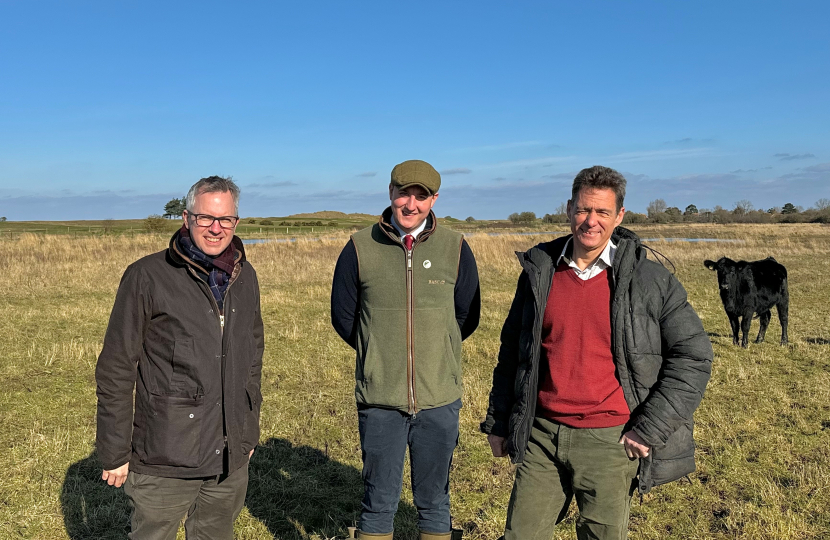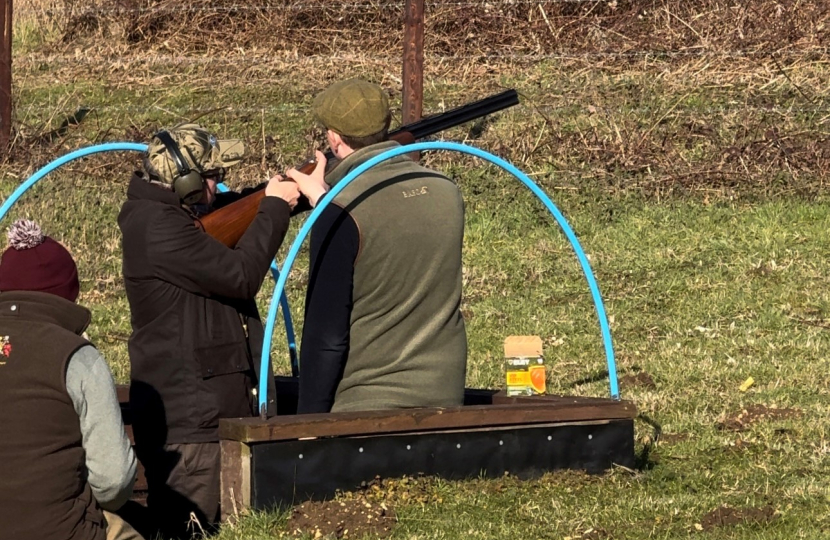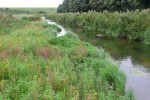James Wild MP recently visited the historic Le Strange estate in Hunstanton to see its approach to conservation, sustainable land management, and rural enterprise.
Managed by the Le Strange family for over 1,000 years, the estate continues to support farming, tourism, and biodiversity while maintaining sustainable traditional countryside pursuits.
In a visit organised by the British Association for Shooting and Conservation (BASC), Charles Le Strange Meakin and Gamekeeper Gareth Maund guided James through The Downs, which features distinctive in-land chalk cliffs, unique to the Norfolk landscape, where they discussed how responsible gamekeeping benefits the local ecosystem. As the group continued, they were treated to the sight of flocks of pink-footed geese taking flight from sugar beet fields, and their distinctive calls echoing overhead.
James also had the opportunity to try clay shooting with biodegradable clays and non-lead ammunition, testing both modern shotguns and a century-old black powder model. The estate regularly welcomes guests from the UK and abroad who visit for its well-managed shooting activities.
At the shoot lodge, discussions focused on shooting’s role in the rural economy and sustainable management. Representatives from the British Association for Shooting and Conservation (BASC), including Regional Officer, Ryan Darby, alongside Jak Abrahams, their Political Affairs Manager, highlighted the wider benefit shooting brings in terms of jobs, economic benefit, habitat management, and conservation. BASC represents 150,000 members, including over 1,000 in North West Norfolk, making it the largest shooting association in the UK.
Commenting after the visit, James said:
"It was valuable to see firsthand how the Le Strange estate alongside BASC is balancing conservation with rural traditions. Their commitment to sustainable land management, biodiversity, and responsible gamekeeping is a model for how we can protect the environment while supporting the local economy.”
The visit also showcased the estate’s efforts to enhance biodiversity, including newly restored wetlands and habitat projects designed to support waders, ground nesting birds, and other wildlife. The management team is committed to making the land as biodiverse as possible, ensuring conservation remains central to its operations.
Following James’ visit, Ryan Darby, BASC Regional Officer, said:
“It was a great opportunity to host Mr. Wild and discuss the environmental, social, and economic benefits that shooting brings to the rural landscape. This includes providing protection and habitat for red-listed species, such as spoonbills and curlews, as well as year-round international tourism, creating local employment, and contributing to the health and well-being of the rural community.”
With protecting the environment as the heart of his Plan for North West Norfolk, James praised the estate’s integrated approach, highlighting how conservation, agriculture, and rural traditions can work hand in hand to benefit both the environment and the local economy.




